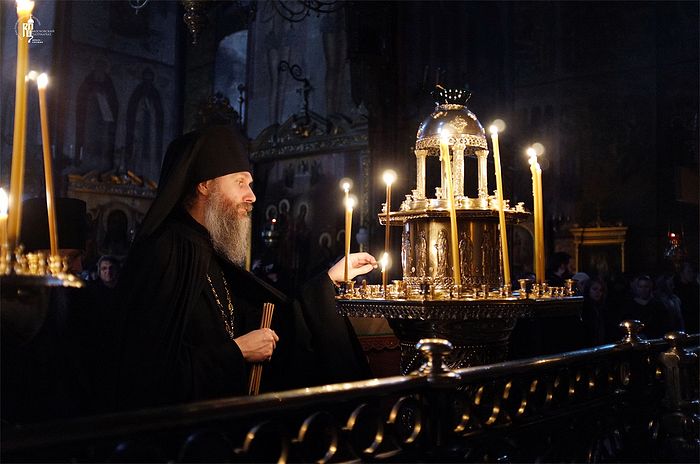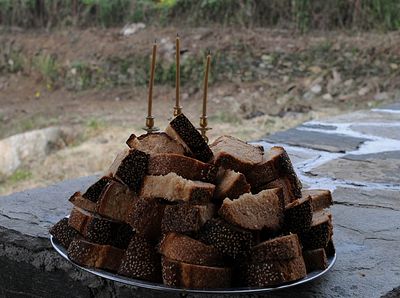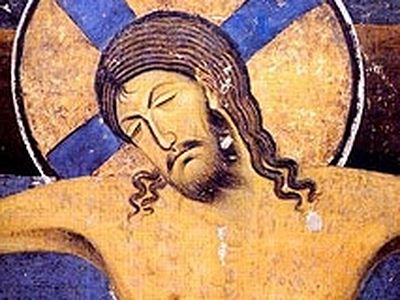
Cheese fare week has passed, and Orthodox Christians have begun the ascetic labor of Great Lent. Many have waited for this time of increased repentance with joy, but there are also those who look at it with dread. Pravoslavie.ru asked several priest of the Russian Orthodox Church to give us a few comforting words as we set out upon the holy forty-day fast, which we present in parts.
* * *

—The Fast is always the possibility to become better, to conquer ourselves, to conquer our bad habits, organize ourselves for spiritual life. If the time of the fast did not come, we would just go on spinning like hamster in its wheel in our earthly affairs and rarely remember any kind of repentance.
I would like to remind everyone that the fast was not invented by some rigorous or ancient monks. The fast is something that existed in from the beginning—back in Paradise God commanded abstinence from the fruit of the tree of the knowledge of good and evil. Do you remember how the Lord said to the first-created Adam: You shall eat from any tree, but you must not eat from this tree—learn abstinence. After all, love for God is expressed in our willingness to deny ourselves anything for His sake. If you think about tasty dishes and comforting the flesh, where is your love of God in this? In the Gospels Christ reminds us about abstinence: And take heed to yourselves, lest at any time your hearts be overcharged with surfeiting, and drunkenness, and cares of this life, and so that day come upon you unawares (Lk. 21:34). This is truly so. Everything fleshly burdens the heart, and this can really be felt, as if a murkiness takes power inside of us. And how can we free ourselves from this if not during the Fast?
I remember how during the early days of my entering into Church life it was hard to fast, and non-fasting food was always running around in my thoughts. But some years went by and I was studying in the seminary, when during one Great Lent I went into a food store and unexpectedly noticed that I was totally indifferent to meat products, as if they did not even exist for me during the fast. You see, it is very important to organize yourself so that your soul would not be ruled by any animal instincts or longings.
But this is not so simple. Usually when a person denies himself something pleasant, there is a whole rebellion within; feelings boil over, and the organism demands the former treats, pleasures, and comforts. The Fast lays bare before us our weakness about which we earlier perhaps never even guessed. And the entire essence of fasting consists in gaining authority over all our senses and requirements. We need to learn to reign over them when they demand what they want, not give in to them, and manifest our victory over our flesh—that is the meaning of abstinence.
Lent is a special time for our struggle with the passions. And a passion is what eats away at a person from inside, be it pride, envy, gluttony, or anger at someone. Passion deprives us of inner peace, tears at the heart, makes the thoughts boil, darkens the mind, and fetters the will with a steel grip. Passion cannot make a person happy, and therefore the one who hurries to satisfy every demand of his insatiable beast is truly pitiful.
The Fast is a struggle for our inner freedom, an attempt to conquer our passions. For this it is very important to go to confession, to partake of the Church sacraments more often, and to strictly oppose each demand made by the passions.
The Fast is a time of especial repentance, and as St. John Climacus said, “Repentance is a voluntary depravation of all bodily consolation. But in place of bodily consolation spiritual consolation is given.” Freedom from the passions brings joy to the soul. Fasting helps make this happen. And if any fast is a joy, then the Great Fast is a great joy. Therefore I would like to wish everyone to enter Great Lent with great joy, knowing that for sincere spiritual labor the Lord with without fail give the Christian His grace-filled mercy.





